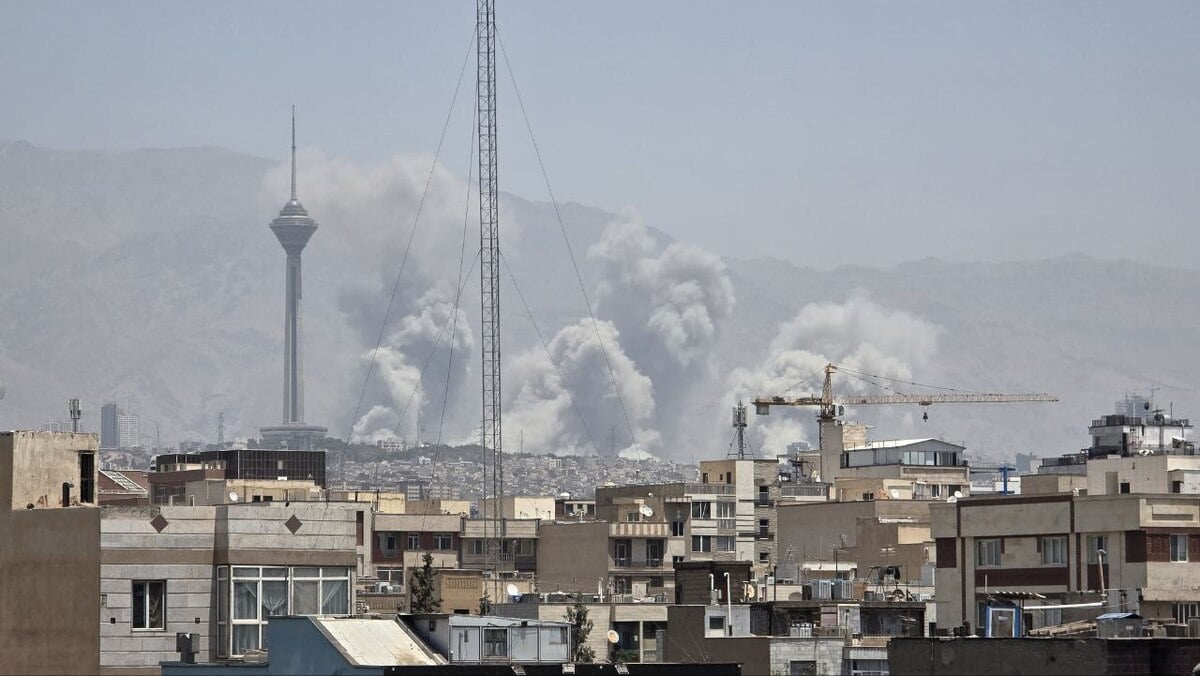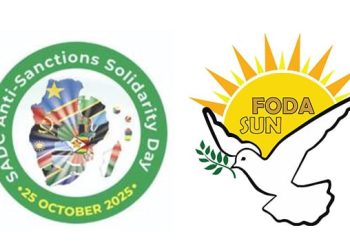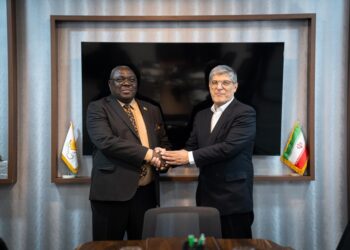Introduction
Over the past four decades, the Middle East has been the scene of a continuous struggle between two contrasting approaches to foreign policy. On the one hand, the Islamic Republic of Iran has sought to play a peacemaking role in the region, grounded in Islamic principles, rational regionalism, and the defense of the oppressed. On the other hand, Israel, relying on the unconditional support of the West and based on a security-centric discourse and enemy-making, has consistently engaged in crisis creation, warmongering, and the incitement of public opinion in the region.
In this paper, we address the various dimensions of Iran’s peace-seeking approach in the face of Israel’s tense and aggressive stance. A strategic analysis of this discursive confrontation is not only necessary for understanding the current regional situation, where Israel has committed aggression against Iran. Still, it can also form the basis for future decision-making at both regional and international levels.
Two Counter-Discourses: Peace vs. Crisis Creation
The Middle East region has become one of the most challenging and critical parts of the world over the past four decades; a region where two counter-discourses have been in constant conflict with each other: the peace-oriented discourse of the Islamic Republic of Iran versus the crisis-creating and expansionist discourse of Israel. These two approaches have substantial differences not only in foreign policy but also in the fundamental layers of their political, strategic, and value-based thought.
Since the beginning of the Islamic Revolution, the Islamic Republic of Iran has, based on religious teachings, moral principles, and the rules of international law, emphasized the necessity of a just peace, regional interaction, dialogue with neighboring countries, and support for oppressed nations, and has put a policy based on legitimate defense, strategic rationality, and tension management on its agenda. In contrast, Israel, taking advantage of the unconditional support of Western powers and with an approach based on destabilizing its surrounding environment, has not only engaged in terror, proxy wars, and the destruction of the infrastructure of neighboring countries, but has also tried to introduce Iran internationally as a global threat.
A comparative study of these two discourses, from the perspective of religious, legal, political, and security concepts, is an undeniable necessity not only for a more accurate understanding of regional developments but also for rethinking future policymaking and presenting strategies based on realism, justice, and multilateral cooperation. The comparative study of this issue, with an analytical and documented approach in the present report, shows the various dimensions of Iran’s peace-seeking discourse against Israel’s hostile strategy.
Fundamentals of the Peaceful Discourse of the Islamic Republic of Iran
Principles of Belief and Religion
- Shiite Islam emphasizes the principle of “peace based on dignity.”
- Quranic teachings, including the verse “And if they incline to peace, then incline to it,” emphasize that peace is superior to war as long as it is accompanied by national and religious dignity (Holy Quran, 2025, https://surahquran.com/aya-61-sora-8.html).
- Imam Khomeini and the Supreme Leader have always emphasized supporting the oppressed, rejecting oppression, and avoiding unnecessary war.
Legal and International Principles
- Iran is an active member of the United Nations Charter and the Non-Proliferation Treaty on Weapons of Mass Destruction, including the NPT (UNIDIR, 2023, https://unidir.org/wp-content/uploads/2023/05/UNIDIR-Lessons-from-the-JCPOA-for-the-ME-WMDFZ-essay-series.pdf).
- Iran has repeatedly emphasized the use of the capacities of international law to resolve regional crises and disputes (Permanent Mission of the Islamic Republic of Iran, 2025, https://newyork.mfa.ir/portal/NewsView/762028/EOP-Resolution-on-Ukraine).
Official Foreign Policy Documents
- The 20-Year Vision Document, the General Policies of the System, and the Second Step of the Revolution Declaration are based on the principle of “constructive interaction with the world” and “preserving national dignity” (Iran Data Portal, 2024, https://irandataportal.syr.edu/20-year-national-vision).
- Various governments of the Islamic Republic, from Hashemi to Raisi and now the Pezeshkian government, have emphasized dialogue, regional diplomacy, strengthening economic cooperation, and avoiding war.
Israel’s Hostile and Tense Behaviors
Terror and Sabotage
- Assassination of Iranian nuclear scientists (Shahid Fakhrizadeh, Alimohammadi, etc.) and cyberattacks on peaceful facilities such as Natanz (NPR, 2020, https://www.npr.org/2020/11/27/939491725/top-iranian-military-scientist-assassinated-state-media-reports).
- Mossad’s role in fomenting internal unrest and hybrid war against Iran.
Regional Aggression
- Repeated airstrikes on Syria, Lebanon, Iraq, and Gaza (ACLED, 2024, https://acleddata.com/2024/10/04/middle-east-september-2024-special-issue-middle-east-crisis/).
- Attempts to create a military front on Iran’s borders with the cooperation of some regional actors and separatist elements.
War-making and International Crisis-making
- Israeli lobbies in the US and Europe to increase sanctions and diplomatic isolation of Iran.
- Distorting the reality of Iran’s nuclear program and creating an atmosphere of “Iranophobia” globally.
Failure to Comply with International Obligations
According to Article 2, paragraph 4 of the Charter of the United Nations, all members shall refrain in their international relations from the threat or use of force against the territorial integrity or political independence of any state, or in any other manner inconsistent with the purposes of the United Nations.
According to this paragraph of the aforementioned article, the parties to the United Nations must respect each other’s territorial integrity and refrain from any act of aggression, whether in the form of armed attack or assassination of a person. Unfortunately, with the invasion of Iranian territory, we have witnessed behavior that violates this article by Israel.
The condemnation of Israel’s actions has already been announced, as Israel has also been condemned by the International Criminal Court. This court, which is located in The Hague, was established in 2000 to investigate the crimes of genocide, crimes against humanity, war crimes, and the crime of aggression. The International Court of Justice in The Hague has stated that Netanyahu and Gallant committed “crimes against humanity and war crimes” at least between October 8, 2023, and May 20, 2024.
Beyond Israel’s failure to comply with international obligations, this actor is also not a member of many international conventions and obligations. For example, it is estimated that Israel’s nuclear arsenal has about 400 nuclear warheads, and this actor’s failure to comply with international law will further increase the insecurity in the region.
Iran’s Tools for Active Peacemaking in the Region
Multilateral Diplomacy
- Iran’s presentation of the “Peace of Hormuz” initiative at the UN for regional security cooperation (European Leadership Network, 2020, https://europeanleadershipnetwork.org/commentary/irans-hormuz-peace-endeavor-and-the-future-of-persian-gulf-security/).
- Iran’s active role in regional pacts (such as Shanghai and BRICS) to counter unilateralism.
Strengthening the Axis of Resistance as a Means of Deterrence
- Supporting occupied nations such as Palestine, Lebanon, Syria, and Yemen not out of aggression, but within the framework of “legitimate defense” and “support for the oppressed.”
- Helping to maintain the stability of legitimate governments in the region against terrorist and proxy groups (Responsible statecraft, 2024, https://responsiblestatecraft.org/iran-attack-pakistan-syria/).
“Smart Tension Management” Strategy
- Avoiding hasty reactions to Israeli attacks and responding intelligently at the right time and place.
- Using the “leverage of time” to build international consensus against Israeli behavior.
Strategic Benefits of Iran’s Peacemaking
International Consensus
- The legitimacy of Iran’s diplomacy, even in times of crisis, has been recognized by many countries.
- Iran has always welcomed engagement with the International Atomic Energy Agency, unlike Israel, which has never accepted the NPT.
Avoiding the Costs of Warmongering
- Avoiding direct conflicts with the United States and Israel has reduced economic and political costs for Iran.
- The policy of “strategic patience” has allowed Iran to have the upper hand in the moral and legal space in most crises.
Conclusion
The approach of the Islamic Republic of Iran in foreign policy is based on the principles of peace, rationality, human dignity, and support for the oppressed. In contrast, Israel is trying to consolidate its regional hegemony by using the tools of war, terror, and crisis-making. The confrontation of these two discourses will shape the future of the Middle East. By continuing active peace-loving policies, maintaining effective deterrence, and strengthening regional diplomacy, Iran can not only overcome crises but also be a model for other nations on the path to sovereign peace. At present, the Islamic Republic of Iran has taken countermeasures based on its legitimate right in response to Israeli aggression; this is while Israel, as an aggressor, has acted against Iran’s territorial integrity.
A careful examination of the components of the Islamic Republic of Iran’s peaceful discourse in comparison to Israel’s crisis-causing and tension-causing policy shows that Iran, despite international pressure, sanctions, and continuous threats, has been able to establish its discourse based on rational logic, religious principles, regional engagement, and respect for international law. This approach has enabled Iran not only to maintain its political legitimacy domestically and regionally but also to be recognized in many global circles as a responsible, patient, and flexible actor in the face of threats.
In contrast, Israel, by continuing its aggressive policies, terror, occupation, and illegal actions against the nations of the region, including Palestine, Lebanon, and Syria, has presented itself as a violent, lawless, and crisis-causing entity. The regime’s extreme support for violence and tension is not only in conflict with international principles and treaties, but it has also contributed to increased instability in the entire region and challenged sustainable peace.
By utilizing tools such as active diplomacy, joining multilateral blocs, strengthening public diplomacy, and the “strategic patience” strategy, Iran has succeeded in reducing the costs of war while simultaneously gaining the upper hand in the moral and legal space. Iran’s role in initiatives such as the Hormuz Peace Plan and constructive interactions with international institutions is a clear sign of its commitment to sustainable regional peace and security.
Ultimately, what will determine the future of the region is not military power or psychological operations, but the ability of countries to present constructive, peace-oriented, and legitimate discourses at the global level. In this arena, the Islamic Republic of Iran’s peace-loving discourse, if properly strengthened, explained, and institutionalized, can become an inspiring model for a region caught in the traps of violence and war; a region that needs rationality, justice, and dialogue more than ever.
Resources
- Holy Quran (2025), But if they incline to peace, you also incline to it, Accessible at: https://surahquran.com/aya-61-sora-8.html
- UNIDIR (2023), From the Iran Nuclear Deal to a Middle East Zone?, Accessible at: https://unidir.org/wp-content/uploads/2023/05/UNIDIR-Lessons-from-the-JCPOA-for-the-ME-WMDFZ-essay-series.pdf
- Permanent Mission of The Islamic Republic of Iran (2025), Resolution on Ukraine, Accessible at: https://newyork.mfa.ir/portal/NewsView/762028/EOP-Resolution-on-Ukraine
- Iran Data Portal (2024), 20 Year National Vision, Accessible at: https://irandataportal.syr.edu/20-year-national-vision
- NPR (2020), Top Iranian Nuclear Scientist Killed in Attack, Accessible at: https://www.npr.org/2020/11/27/939491725/top-iranian-military-scientist-assassinated-state-media-reports
- ACLED (2024), Expanding Israeli operations in Lebanon and the escalation of the Middle East crisis, Accessible at: https://acleddata.com/2024/10/04/middle-east-september-2024-special-issue-middle-east-crisis/
- European Leadership Network (2020), Iran’s Hormuz Peace Endeavor and the future of Persian Gulf security, Accessible at: https://europeanleadershipnetwork.org/commentary/irans-hormuz-peace-endeavor-and-the-future-of-persian-gulf-security/
- Responsible statecraft (2024), Iran is waging its own war on terror, Accessible at: https://responsiblestatecraft.org/iran-attack-pakistan-syria/





